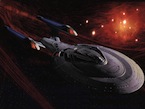gamer78
Posts: 536
Joined: 8/17/2011
Status: offline

|
quote:
ORIGINAL: altipueri
quote:
ORIGINAL: Curtis Lemay
Yet the figures seem to be only 51,000 Taliban killed in 20 years of warfare. Average of 2550 per year.
This is a good read about the Taliban:
https://www.gutenberg.org/files/9404/9404-h/9404-h.htm
Here's a bit:
This state of continual tumult has produced a habit of mind which recks little of injuries, holds life cheap and embarks on war with careless levity, and the tribesmen of the Afghan border afford the spectacle of a people, who fight without passion, and kill one another without loss of temper. Such a disposition, combined with an absolute lack of reverence for all forms of law and authority, and a complete assurance of equality, is the cause of their frequent quarrels with the British power. A trifle rouses their animosity. They make a sudden attack on some frontier post. They are repulsed. From their point of view the incident is closed. There has been a fair fight in which they have had the worst fortune. What puzzles them is that "the Sirkar" should regard so small an affair in a serious light. Thus the Mohmands cross the frontier and the action of Shabkadr is fought. They are surprised and aggrieved that the Government are not content with the victory, but must needs invade their territories, and impose punishment. Or again, the Mamunds, because a village has been burnt, assail the camp of the Second Brigade by night. It is a drawn game. They are astounded that the troops do not take it in good part.
They, when they fight among themselves, bear little malice, and the combatants not infrequently make friends over the corpses of their comrades or suspend operations for a festival or a horse race. At the end of the contest cordial relations are at once re-established. And yet so full of contradictions is their character, that all this is without prejudice to what has been written of their family vendettas and private blood feuds. Their system of ethics, which regards treachery and violence as virtues rather than vices, has produced a code of honour so strange and inconsistent, that it is incomprehensible to a logical mind. I have been told that if a white man could grasp it fully, and were to understand their mental impulses—if he knew, when it was their honour to stand by him, and when it was their honour to betray him; when they were bound to protect and when to kill him—he might, by judging his times and opportunities, pass safely from one end of the mountains to the other. But a civilised European is as little able to accomplish this, as to appreciate the feelings of those strange creatures, which, when a drop of water is examined under a microscope, are revealed amiably gobbling each other up, and being themselves complacently devoured.
I remark with pleasure, as an agreeable trait in the character of the Pathans, the immunity, dictated by a rude spirit of chivalry, which in their ceaseless brawling, their women enjoy. Many forts are built at some distance from any pool or spring. When these are besieged, the women are allowed by the assailants to carry water to the foot of the walls by night. In the morning the defenders come out and fetch it—of course under fire—and are enabled to continue their resistance. But passing from the military to the social aspect of their lives, the picture assumes an even darker shade, and is unrelieved by any redeeming virtue. We see them in their squalid, loopholed hovels, amid dirt and ignorance, as degraded a race as any on the fringe of humanity: fierce as the tiger, but less cleanly; as dangerous, not so graceful. Those simple family virtues, which idealists usually ascribe to primitive peoples, are conspicuously absent. Their wives and their womenkind generally, have no position but that of animals. They are freely bought and sold, and are not infrequently bartered for rifles. Truth is unknown among them. A single typical incident displays the standpoint from which they regard an oath. In any dispute about a field boundary, it is customary for both claimants to walk round the boundary he claims, with a Koran in his hand, swearing that all the time he is walking on his own land. To meet the difficulty of a false oath, while he is walking over his neighbor's land, he puts a little dust from his own field into his shoes. As both sides are acquainted with the trick, the dismal farce of swearing is usually soon abandoned, in favor of an appeal to force.
All are held in the grip of miserable superstition. The power of the ziarat, or sacred tomb, is wonderful. Sick children are carried on the backs of buffaloes, sometimes sixty or seventy miles, to be deposited in front of such a shrine, after which they are carried back—if they survive the journey—in the same way. It is painful even to think of what the wretched child suffers in being thus jolted over the cattle tracks. But the tribesmen consider the treatment much more efficacious than any infidel prescription. To go to a ziarat and put a stick in the ground is sufficient to ensure the fulfillment of a wish. To sit swinging a stone or coloured glass ball, suspended by a string from a tree, and tied there by some fakir, is a sure method of securing a fine male heir. To make a cow give good milk, a little should be plastered on some favorite stone near the tomb of a holy man. These are but a few instances; but they may suffice to reveal a state of mental development at which civilisation hardly knows whether to laugh or weep.
Their superstition exposes them to the rapacity and tyranny of a numerous priesthood—"Mullahs," "Sahibzadas," "Akhundzadas," "Fakirs,"—and a host of wandering Talib-ul-ilms, who correspond with the theological students in Turkey, and live free at the expense of the people. More than this, they enjoy a sort of "droit du seigneur," and no man's wife or daughter is safe from them. Of some of their manners and morals it is impossible to write. As Macaulay has said of Wycherley's plays, "they are protected against the critics as a skunk is protected against the hunters." They are "safe, because they are too filthy to handle, and too noisome even to approach."
Yet the life even of these barbarous people is not without moments when the lover of the picturesque might sympathise with their hopes and fears. In the cool of the evening, when the sun has sunk behind the mountains of Afghanistan, and the valleys are filled with a delicious twilight, the elders of the village lead the way to the chenar trees by the water's side, and there, while the men are cleaning their rifles, or smoking their hookas, and the women are making rude ornaments from beads, and cloves, and nuts, the Mullah drones the evening prayer. Few white men have seen, and returned to tell the tale. But we may imagine the conversation passing from the prices of arms and cattle, the prospects of the harvest, or the village gossip, to the great Power, that lies to the southward, and comes nearer year by year. Perhaps some former Sepoy, of Beluchis or Pathans, will recount his adventures in the bazaars of Peshawar, or tell of the white officers he has followed and fought for in the past. He will speak of their careless bravery and their strange sports; of the far-reaching power of the Government, that never forgets to send his pension regularly as the months pass by; and he may even predict to the listening circle the day when their valleys will be involved in the comprehensive grasp of that great machine, and judges, collectors and commissioners shall ride to sessions at Ambeyla, or value the land tax on the soil of Nawagai. Then the Mullah will raise his voice and remind them of other days when the sons of the prophet drove the infidel from the plains of India, and ruled at Delhi, as wide an Empire as the Kafir holds to-day: when the true religion strode proudly through the earth and scorned to lie hidden and neglected among the hills: when mighty princes ruled in Bagdad, and all men knew that there was one God, and Mahomet was His prophet. And the young men hearing these things will grip their Martinis, and pray to Allah, that one day He will bring some Sahib—best prize of all—across their line of sight at seven hundred yards so that, at least, they may strike a blow for insulted and threatened Islam.
The
Problem about both Egypt(Which I've stayed for many years) and Iran was foreign occupation. After Ottoman Empire dominance Egypt declare himself as a European nation. Many reforms but GB invaded shortly. Iran similar in beginning of this century. State definition as a whole collapsed for both nations and religious warlords and sects become stronger destroyed national unity after foreign occupation. Libya, Iraq and Syria modern examples. Anyway I won't go further in this ridiculous sources politics. 
< Message edited by gamer78 -- 10/27/2021 10:28:32 PM >
|
 Printable Version
Printable Version




















 New Messages
New Messages No New Messages
No New Messages Hot Topic w/ New Messages
Hot Topic w/ New Messages Hot Topic w/o New Messages
Hot Topic w/o New Messages Locked w/ New Messages
Locked w/ New Messages Locked w/o New Messages
Locked w/o New Messages Post New Thread
Post New Thread